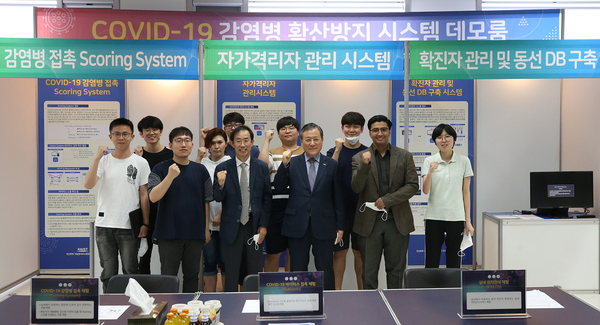A research team led by Professor DongSoo Han of School of Computing has developed a new software that assists prompt and efficient public health surveillance without the risk of privacy concerns, called “Prevention System for the Pandemic Disease Infection (PreSPI).” This software utilizes the “smartphone black box” model that, when installed on the smartphone, regularly collects and records signals from GPS, wireless LAN, BlueTooth, barometers, and IMUs.

While the “K-quarantine” model has been effective in controlling COVID-19, it has raised serious questions about privacy, as contact-tracing has been made by accessing personal information such as credit card records. PreSPI addresses this issue by collecting data from the GPS or WiFi sensors installed on the phone. The personal data will not be revealed to others, and when disclosure of the patient’s movements has to be made, it is revealed as coded signals rather than the name of the places. All stored data will automatically be discarded after two weeks — the incubation period of COVID-19.
The PreSPI consists of three parts. The public can use the “Scoring System” to check whether their movements overlap with people who tested positive. The app compares the GPS signals collected from the individual’s smartphone black box with the tracings of the patients. Another part of the software is the patient contact-tracing system for health authorities. Using the collected data from the phone, it pinpoints the places that infected people visited on the map, which can greatly facilitate the analysis of the movements. Lastly, it can more efficiently monitor quarantine. Since it collects wireless LAN signals along with GPS signals of the phones, it allows both indoor and outdoor movement tracking, easing the process of monitoring whether people have broken quarantine guidelines.
Currently, the research team is in the process of testing the system on about 30 smartphones with different sensors installed on it. As soon as the testing is done, it will be available to the public. KAIST President Sung-Chul Shin emphasized that “the PreSPI system can significantly reduce the effort and time it takes health authorities to contain the virus without encroaching on individuals’ privacy” and that “it will once again prove the superb K-quarantine system to the world.”

